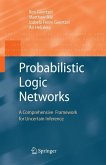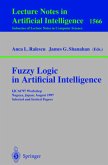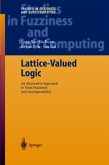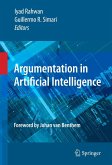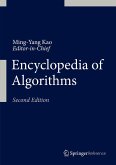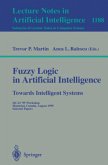This book describes Probabilistic Logic Networks (PLN), a novel conceptual, mathematical and computational approach to uncertain inference. In order to carry out effective reasoning in real-world circumstances, AI software must robustly handle uncertainty. However, previous approaches to uncertain inference do not have the breadth of scope required to provide an integrated treatment of the disparate forms of cognitively critical uncertainty as they manifest themselves within the various forms of pragmatic inference. Going beyond prior probabilistic approaches to uncertain inference, PLN is able to encompass within uncertain logic such ideas as induction, abduction, analogy, fuzziness and speculation, and reasoning about time and causality. The book reviews the conceptual and mathematical foundations of PLN, giving the specific algebra involved in each type of inference encompassed within PLN. Inference control and the integration of inference with other cognitive faculties are also briefly discussed.
Abstract In this chapter we provide an overview of probabilistic logic networks (PLN), including our motivations for developing PLN and the guiding principles underlying PLN. We discuss foundational choices we made, introduce PLN knowledge representation, and briefly introduce inference rules and truth-values. We also place PLN in context with other approaches to uncertain inference. 1.1 Motivations This book presents Probabilistic Logic Networks (PLN), a systematic and pragmatic framework for computationally carrying out uncertain reasoning - r- soning about uncertain data, and/or reasoning involving uncertain conclusions. We begin with a few comments about why we believe this is such an interesting and important domain of investigation. First of all, we hold to a philosophical perspective in which "reasoning" - properly understood - plays a central role in cognitive activity. We realize that other perspectives exist; in particular, logical reasoning is sometimes construed as a special kind of cognition that humans carry out only occasionally, as a deviation from their usual (intuitive, emotional, pragmatic, sensorimotor, etc.) modes of thought. However, we consider this alternative view to be valid only according to a very limited definition of "logic." Construed properly, we suggest, logical reasoning may be understood as the basic framework underlying all forms of cognition, including those conventionally thought of as illogical and irrational.
Abstract In this chapter we provide an overview of probabilistic logic networks (PLN), including our motivations for developing PLN and the guiding principles underlying PLN. We discuss foundational choices we made, introduce PLN knowledge representation, and briefly introduce inference rules and truth-values. We also place PLN in context with other approaches to uncertain inference. 1.1 Motivations This book presents Probabilistic Logic Networks (PLN), a systematic and pragmatic framework for computationally carrying out uncertain reasoning - r- soning about uncertain data, and/or reasoning involving uncertain conclusions. We begin with a few comments about why we believe this is such an interesting and important domain of investigation. First of all, we hold to a philosophical perspective in which "reasoning" - properly understood - plays a central role in cognitive activity. We realize that other perspectives exist; in particular, logical reasoning is sometimes construed as a special kind of cognition that humans carry out only occasionally, as a deviation from their usual (intuitive, emotional, pragmatic, sensorimotor, etc.) modes of thought. However, we consider this alternative view to be valid only according to a very limited definition of "logic." Construed properly, we suggest, logical reasoning may be understood as the basic framework underlying all forms of cognition, including those conventionally thought of as illogical and irrational.


